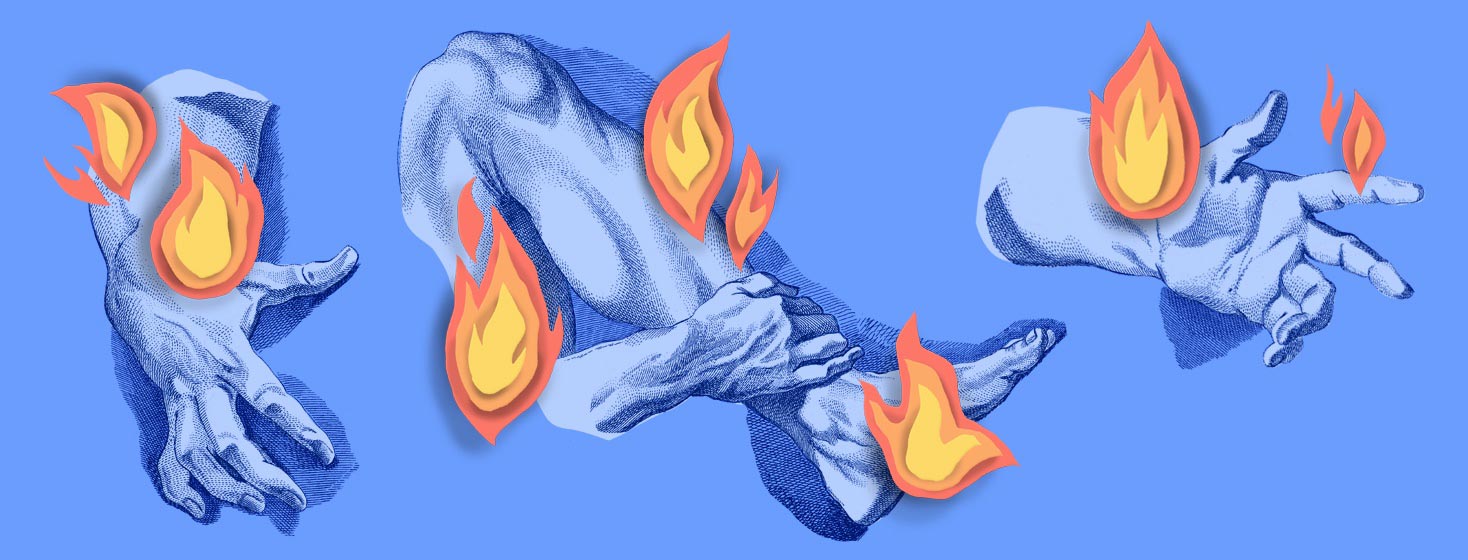Muscle and Joint Pain
In Health Union's 2020 Hepatitis C In America survey, muscle aches were reported as one of the most common symptoms of hepatitis C, second to fatigue. Among patients who were not yet cured of hep C, top symptoms were fatigue (82%), muscle aches (70%), depression (68%), and insomnia (61%).
These results correlate to those conclusions found in other studies; In a study of just over 1600 patients with chronic HCV infection, there was a 74% prevalence of extrahepatic manifestations. Arthralgia and arthritis were the most common, while others included paresthesia, myalgia, pruritus, and sicca syndrome.1
Many hepatitis C patients experience pain
The muscle aches and joint pain associated with hepatitis C can, in some of those infected, become a chronic debilitating problem that inhibits participation in active physical activities, negatively impacts mental health, and leads to associated health problems including increased smoking, alcohol consumption and other high risk behavior. A 2007 study of hepatitis C induced pain among veterans noted that the preliminary results demonstrated that a significant majority (82.7%) reported pain symptoms, a result that supports what is becoming increasingly clear that pain is a significant problem in patients diagnosed with HCV. Many of those in this cohort report that their pain has interfered with their daily activities and relationships.2
Arthritis caused by hepatitis C
Arthritis stemming from chronic hepatitis can be characterized in two primary form. The first caused by a hematologic (blood) disorder called cryoglobulinemia; The disorder creates abnormal proteins or cryoglobulins that can thicken and clump in the blood stream, affecting the muscles and causing and joint pain known as cryoglobulin-related arthritis.
The second common form of arthritis found in those infected with hepatitis C is rheumatoid arthritis, which is triggered by an immune response located within the joints. Systemic lupus erythematosus is an autoimmune disease causes ones healthy tissue to be attacked and can also cause pain in the joints. (Arthralgia, a condition that causes joint pain, is associated with hepatitis C and should not be confused with hepatitis C related arthritis that causes pain and swelling in the joints.)
Coping with muscle and joint pain
For patients with very mild arthritis, "conservative management using analgesics with anti-inflammatory activity (NSAIDs) is recommended to reduce joint pain and swelling... These drugs can be used safely in patients with mild to moderate chronic HCV... In patients with advanced liver disease, such as cirrhosis, the use of NSAIDs is somewhat contraindicated because of their nephrotoxic effect as well as the risk of GI bleeding from esophageal and gastric varices."3
Many persons experience general discomfort and there are several recommendations that may improve the condition:
- Apply warm moist heat to areas of discomfort or hot baths.
- Try gentle exercise like walking, stretching, yoga or Tai Chi.
- Get a massage, try acupuncture and healing touch.
- Avoid prolonged sitting or reclining
- Talk to your medical provider about taking over-the-counter pain relievers such as Tylenol (acetaminophen), aspirin, Advil/Motrin (ibuprofen), or Aleve (naproxen)
- Stay hydrated by drinking plenty of water, 8-12, 8 oz. glasses of water daily. See your provider if you have pain, swelling, or redness in a joint.
How do you cope with muscle or joint pain from hep C?

Join the conversation